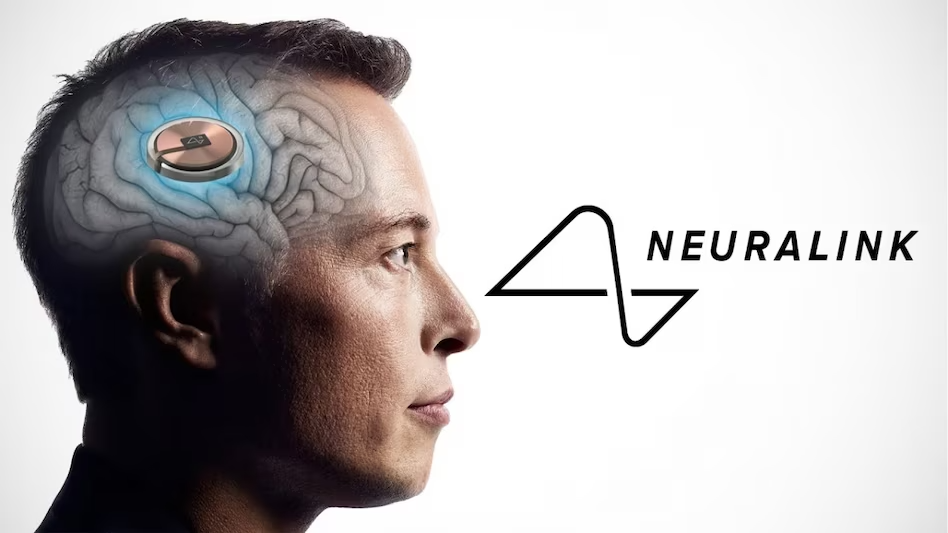Neuralink: A Bold Experiment from the Tech Mogul? by Yixiao Song

Posted in 2024 The Gnovis Blog | Tagged artificial intelligence, biotech, brain-computer interface, data privacy, elon musk, neurotechnology, tech ethics
By Yixiao Song
Yet another of Elon Musk’s rockets exploded recently; the company prefers the euphemism “rapid unscheduled disassembly.” One wonders what euphemisms Musk will use for his potentially disastrous experiments with human brains. Neuralink, the biotech company founded by Elon Musk, received FDA approval for its first human clinical trial last May. Neuralink’s ambitious goal is to develop implantable brain-computer interfaces, helping people with paralysis to restore their motor, sensory, and even visual functions by implanting a coin-sized chip into the area of the brain that controls the intention to move. The procedure requires invasive brain surgery, and the device was classified as Class III, the FDA’s highest risk level, requiring pre-market studies of safety and effectiveness.
Brain-computer Interface (BCI) is not a new concept—the technology has been widely studied for the past 50 years. The earliest animal experiment from UCLA on brain-computer communication took place in the 1970s, and much progress has been made since. BrainGate, a pioneering organization on developing BCI technology, can decode speech from brain signals at 125 words per minute, to restore fluent conversational speech to individuals impacted by neurological damage or disease. The Chang Lab at UC San Francisco has achieved significant advancements in recording brain activities and translating them into audible synthetic speech with accurate facial movements on an avatar. In contrast, Neuralink’s presentation on how its chips can capture the brain signal of a pig and predict its limb movement using implant data looks downright primitive.
Perhaps to overtake more sophisticated competitors, Neuralink appears to have jumped the gun, planning human trials despite being in the early stages of animal experiments. They may have rushed the animal experiments too. In 2022, Neuralink faced federal scrutiny for potentially violating animal welfare rules after one monkey died in an experiment. An animal rights group revealed botched animal experiments. A revealing Reuters interview of 20 current and former employees revealed concerns that Musk relentlessly pushed to expedite development, allegedly resulting in unnecessary animal deaths. Neuralink eventually passed USDA inspections and received its investigational device exemption (IDE) to conduct its first human trial approval from the FDA in 2023.
Elon Musk’s vision extends beyond merely aiding individuals with quadriplegia; he seeks to forge a symbiotic relationship between human and machine intelligence. While companies like Synchron strive to develop solutions through minimally invasive procedures that don’t involve open brain surgery, Neuralink embraces a more aggressive approach, arguing that its strategy amplifies the bandwidth of communication.
“AI will diverge from us just because it can’t talk to us, …it [will get] bored and [leave]” Musk explained, referring to how Neuralink will enhance human conversation with AI by amplifying our communication output and input through brain signals in his interview with New York Times.
The question looms: Does this open the floodgates to accessing more data from our brains, as the website boldly claims, “to scale up the number of electrodes for better robustness and higher information throughput” and “to unlock human potential tomorrow”?
Although the current focus of this technology lies predominantly in motor rehabilitation, it’s not much of a reach to assume that this groundbreaking innovation will eventually find its way into commercial applications, with disturbing ethical implications. There is already a growing market for wearable BCI devices, like headphones designed to optimize performance by collecting neural activity data.
While launching a rocket into the sky may afford room for error, the landscape of invasive brain surgery is a vastly different terrain. Here, failure isn’t merely a setback; it could potentially maim or kill people. The stakes are undeniably high, prompting the need for monitoring the ethical tightrope Neuralink is navigating in its pursuit of groundbreaking advancements.
The Nature Journal uncovered that 18 neurotechnology companies have terms and conditions compelling users to surrender ownership of their brain data. What’s even more concerning is that nearly all these companies retain the option to disseminate sensitive data to third parties. This underscores the pressing need for ethical considerations and robust regulations as we tread into the uncharted territory of human-machine symbiosis.
Mainstream acceptance of Brain-Computer Interfaces (BCI) may not be far away, but regulatory agencies should proceed with caution with invasive BCI devices. This pertains to the far-reaching and enduring impact on the public’s “NeuroRight,” or ownership of their neurons and their thoughts. Are ventures like Neuralink’s bold experiments challenging the boundaries of human potential, or are they engaging in reckless experimentation on humans intending to commercialize our thoughts?
References
About Braingate. (n.d.). BrainGate. Retrieved November 9, 2023, from https://www.braingate.org/about-braingate/
Chang Lab. (n.d.). Retrieved November 9, 2023, from https://changlab.ucsf.edu/
Drew, L. (2023). Mind-reading machines are coming – how can we keep them in check? Nature (London), 620(7972), 18-. https://doi.org/10.1038/d41586-023-02405-y
Exclusive: Musk’s Neuralink faces federal probe, employee backlash over animal tests | Reuters. (n.d.). Retrieved November 9, 2023, from https://www.reuters.com/technology/musks-neuralink-faces-federal-probe-employee-backlash-over-animal-tests-2022-12-05/
Kawala-Sterniuk, A., Browarska, N., Al-Bakri, A., Pelc, M., Zygarlicki, J., Sidikova, M., Martinek, R., & Gorzelanczyk, E. J. (2021). Summary of over Fifty Years with Brain-Computer Interfaces—A Review. Brain Sciences, 11(1), 43. https://doi.org/10.3390/brainsci11010043
Physicians Group Asks FDA to Investigate Elon Musk’s Neuralink for Violations of Federal Law Revealed by Public Records, Employee Whistleblowers. (n.d.). Retrieved November 9, 2023, from https://www.pcrm.org/news/news-releases/physicians-group-asks-fda-investigate-elon-musks-neuralink-violations-federal
Samuel, S. (2023, October 16). Elon Musk wants to merge humans with AI. How many brains will be damaged along the way? Vox. https://www.vox.com/future-perfect/23899981/elon-musk-ai-neuralink-brain-computer-interface
Studio, P. (n.d.). Neuralink. Neuralink. Retrieved November 9, 2023, from https://neuralink.com/?202308049001
The Winner of 2023. (n.d.). BCI Award. Retrieved November 9, 2023, from https://www.bci-award.com/2023
